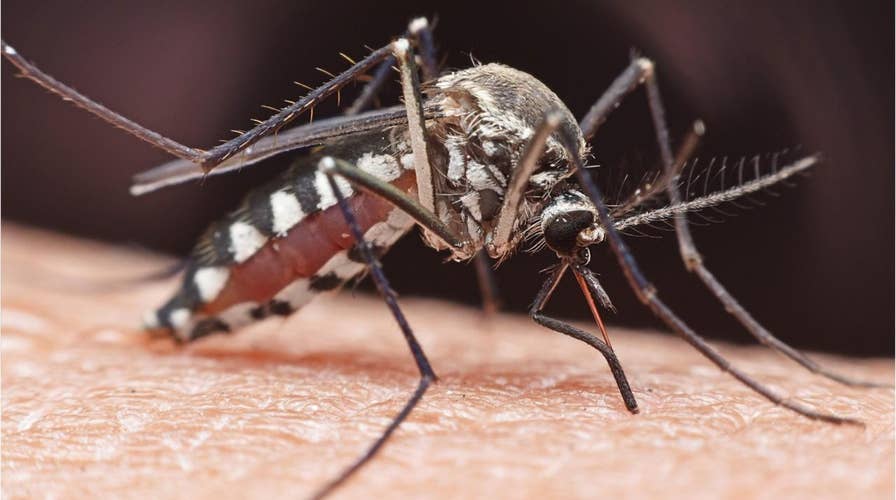How to keep mosquitoes away this summer
Hot and humid weather brings out those pesky mosquitoes. Here are a few simple tips to live a mosquito-free summer.
A human case of the mosquito-borne West Nile virus was confirmed in Palm Beach County this week for the first time since 2018.
The case was "locally acquired," according to a news release from the Florida Department of Health in Palm Beach County. An exact location was not provided, nor was the person’s condition.
WHAT IS WEST NILE VIRUS? 3 THINGS TO KNOW ABOUT THE MOSQUITIO-SPREAD AILMENT
Following confirmation of the case, “there is a heightened concern additional residents may become ill,” officials said.
The two cases in 2018 were imported, meaning they were not locally acquired in the country.
West Nile virus — which was first reported in the U.S. in 1999 — is typically spread by infected mosquitoes. Though side effects can be severe, most people who are infected experience little to no symptoms and fully recover.
A small percentage of people infected with West Nile virus — roughly 1 in 5 — develop a fever and may additionally experience headaches, body aches, vomiting, diarrhea or a rash, among other side effects. Even rarer, about 1 in 150 people who are infected with the mosquito-linked ailment can develop a serious illness, such as inflammation of the spinal cord or brain, according to the Centers for Disease Control and Prevention (CDC).
The Mayo Clinic warns people who are older, as well as those with pre-existing medical conditions, are more susceptible to the virus.
NEW MEXICO SEES FIRST HUMAN WEST NILE CASE OF THE YEAR
There is no vaccine or treatment to prevent the disease, though there are preventive steps to lessen the risk of being bitten by a mosquito in the first place. For instance, health officials advise:
- Drain water from garbage cans, house gutters, buckets, pool covers, coolers, toys, flower pots or any other containers where sprinkler or rainwater has collected
- Discard old tires, drums, bottles, cans, pots and pans, broken appliances and other items that aren't being used
- Empty and clean birdbaths and pet water bowls at least once or twice a week
- Protect boats and vehicles from rain with tarps that don’t accumulate water
- Maintain swimming pools in good condition and appropriately chlorinated. Empty plastic swimming pools when not in use
Wearing long sleeves and pants at dawn and dusk, when mosquitoes are most active, is also helpful in preventing mosquito bites, as is applying mosquito repellent “to bare skin and clothing,” officials said.








































